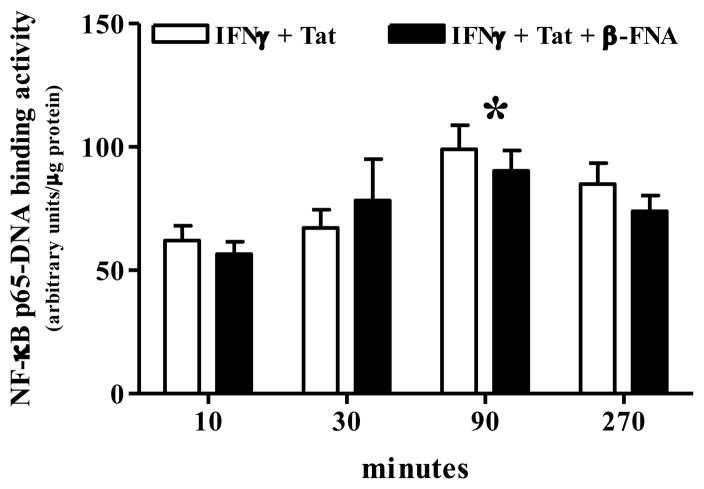Fig. 4.
β-FNA does not inhibit IFNγ + HIV-1 Tat1–72, -induced NF-κB p65-DNA binding activity in normal human astrocytes. In the presence or absence or β-FNA (10 μM), normal human astrocytes were exposed to human recombinant IFNγ (10 ng/ml) + HIV-1 Tat1–72 for 10–270 min. NF-κB activation was indicated by increased levels of the active (DNA-binding) form of NF-κB p65 in the nucleus. The data represent mean + S.E.M of 3 independent experiments. Two-way ANOVA (β-FNA treatment × time) indicated a significant effect of time (p < 0.004); whereas, there was neither a significant effect of β-FNA (p = 0.59), nor an interaction (p = 0.62). * p < 0.05 vs. 10 min as indicated by Bonferroni’s multiple comparisons. Binding activity in unstimulated cells was 43 ± 7 arbitrary units/μg protein.

